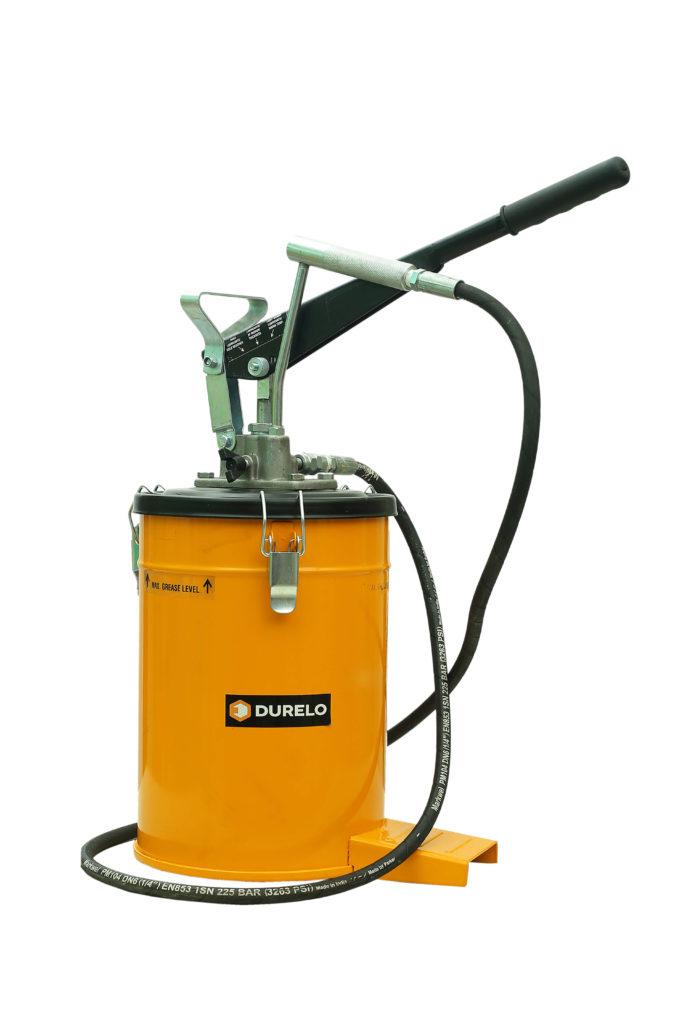The Importance of Grease Pumps in Industrial Maintenance

Grease pumps are critical components in the industrial maintenance toolkit, ensuring that machinery operates smoothly and efficiently. By delivering the right amount of lubricant at the right time, these pumps help prevent wear and tear on equipment, leading to improved performance and longer service life. This article explores the various types of grease pumps, their applications, and the significant benefits they bring to industrial operations.
What Are Grease Pumps?
Grease pumps are devices designed to deliver lubricating grease to machinery, reducing friction and preventing parts from seizing. They can be operated manually, pneumatically, or electrically, depending on the needs of the operation. By ensuring that machines are well-lubricated, grease pumps play a vital role in the maintenance of mechanical systems.
Types of Grease Pumps
-
Manual Grease Pumps:
- These pumps are typically operated by hand, using a lever or a trigger mechanism. Manual grease pumps are cost-effective and ideal for smaller applications where precision is key. Common examples include handheld grease guns and lever-operated pumps.
-
Pneumatic Grease Pumps:
- Utilizing compressed air, pneumatic grease pumps provide quick and efficient lubrication, making them ideal for high-volume applications. They are often found in workshops where multiple machines need regular lubrication.
-
Electric Grease Pumps:
- Electric grease pumps offer automated lubrication, making them suitable for continuous or high-demand environments. These pumps can dispense grease at predetermined intervals, ensuring that machinery receives consistent lubrication.
-
Centralized Grease Dispensing Systems:
- These systems integrate multiple grease pumps into a single network, allowing for the automated distribution of grease to various points in large machinery or multiple machines. Centralized systems improve efficiency and simplify maintenance tasks.
Applications of Grease Pumps
Grease pumps are essential across numerous industries, including:
-
Automotive: In vehicle maintenance, grease pumps ensure that wheel bearings, chassis, and other components remain lubricated to prevent premature failure.
-
Manufacturing: Factories rely on grease pumps to maintain production equipment, including conveyors, gears, and motors, reducing downtime caused by equipment failure.
-
Construction: Heavy construction equipment, such as bulldozers and excavators, benefits from regular lubrication to prevent breakdowns in demanding environments.
-
Mining: In harsh mining conditions, grease pumps help keep heavy machinery and trucks running smoothly, minimizing disruptions in operations.
Benefits of Using Grease Pumps
-
Enhanced Equipment Reliability:
- Consistent lubrication prevents machinery from overheating and failing, leading to more reliable operation and reduced downtime.
-
Cost Savings:
- Regularly lubricated equipment operates more efficiently, which can lead to lower energy costs and reduced maintenance expenses.
-
Increased Productivity:
- By preventing machinery breakdowns and ensuring smooth operation, grease pumps contribute to higher productivity levels in industrial settings.
-
Safety Improvements:
- Proper lubrication reduces the risk of machinery malfunction, which can lead to hazardous situations for workers.
-
Environmental Benefits:
- Efficient grease pumps help minimize waste by delivering the precise amount of lubricant needed, reducing spills and environmental impact.
Conclusion
Grease pumps are indispensable tools in industrial maintenance, providing the lubrication necessary to keep machinery running smoothly and efficiently. Understanding the different types of grease pumps and their applications can help businesses implement effective maintenance strategies, resulting in enhanced performance and reduced operational costs. By investing in quality grease pumps and adopting proper lubrication practices, industries can ensure their machinery operates at peak performance, ultimately leading to increased productivity and safety.
- Art
- Causes
- Crafts
- Dance
- Drinks
- Film
- Fitness
- Food
- Games
- Gardening
- Health
- Home
- Literature
- Music
- Networking
- Other
- Party
- Religion
- Shopping
- Sports
- Theater
- Wellness
- IT, Cloud, Software and Technology


